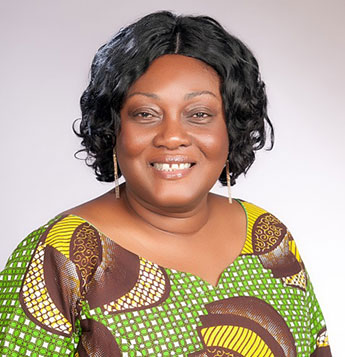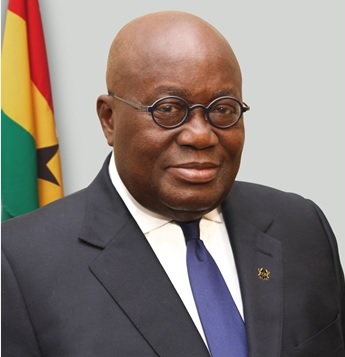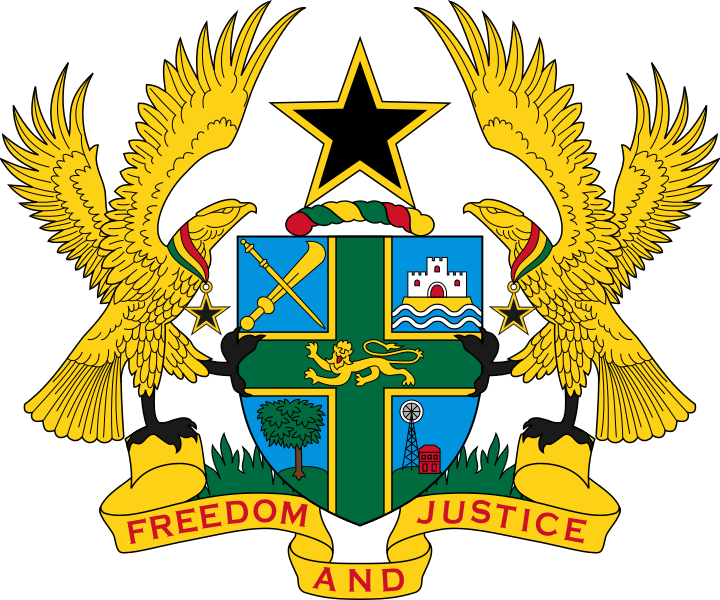
H.E. Gina Ama Blay
Ambassador of the Republic of Ghana to the Federal Republic of Germany
Travel & Tourism
AKWAABA – Welcome to Ghana, the safest, friendliest, most affordable English-speaking country in Africa
Getting there takes you
- 6 hours flight from London
- 7 hours flight from Berlin
- 7 hours flight from Paris
- 7 hours flight from Amsterdam
- 8.5 hours from New York
Tour Ghana at your pace!
Situated in the heart of West Africa, five degrees north of the equator, Ghana is a warm, tropical country with 540km of scenic palm-fringed beaches and the friendliest people in all of Africa. Ghana enjoys lush forests and jungles in the south and vast savannahs in the north. Scenic highland ranges ensure abundant precipitation and green vegetation in the region.
The Republic of Ghana achieved independence from British rule on the 6th of March 1957 and the first President, Dr. Kwame Nkrumah, became the Head of State of the first independent black nation in Africa. The official language is English and the legal system is based on English common law and customary law.
The capital, Accra, is situated on the coast and is a bustling African city housing the seat of government, the parliament and most national institutions. Kotoka International Airport is five kilometers from the center of Accra. The second largest city, Kumasi, is the historic capital of the Ashanti civilisation and home to the King and palaces of the Ashanti. Although Ghana is a Republic its Kings and Queens have played a major role in the governance of the country for over 450 years.
The Portuguese built the Elmina Castle in 1482, their first defence against other Europeans attempting to establish trading businesses on the Gold Coast (Ghana’s former name). Cape Coast Castle, Elmina Castle and fort St. Jago have been designated World Heritage Monuments by UNESCO. These impressive monuments are the oldest European buildings outside Europe. There is a shrine to the memory of all who were forced into slavery at Cape Coast Castle.
Ghana is blessed with accessible rainforests. At Kakum National Park, there is a canopy walkway that takes visitors 30-meters high above the rainforest. Mole National Park is ideal for safaris and wildlife and there is a motel and viewing platform with panoramic views.
Throughout Ghana, there are many crocodile ponds and monkey sanctuaries for close-up photos. The numerous lagoons and swamplands are natural nesting grounds for local and migratory birds. There are many spectacular waterfalls within walking distance from the roads.
Ghana is a land of festivals, and visitors are always welcome and encouraged to join in the fun. One of the amazing celebrations is the royal durbar that attracts vast audiences. The King of Ashanti in golden splendour meets his people in Kumasi, an occasion where Ghana’s world famous kente fabrics explode in a profusion of styles and colours.
There are lots of activities: safaris, trekking, photography, fishing, canoeing, sailing, watersports, golf, climbing, horse racing and for the daring a trip on a fishing boat on the surf. For the more leisurely visitor there are arts and craft markets, trips down gold mines, cruises on the vast lake Volta, and courses in music, drumming and dancing.
Ghana’s warm climate nourishes a vast harvest of fruit and vegetables that are complemented by an offshore and inland fishing industry that all combine to provide exquisite Ghanaian dishes. There is a wide choice of excellent restaurants including fast food, Indian, Chinese, Italian, English, French and Ghanaian, and a host of nightclubs to suit all tastes in music entertainment documents
All visitors to Ghana must be in possession of a valid passport or legal travel documents. All visitors entering Ghana must have valid entry visa or, in the case of Commonwealth nationals, entry permits, issued by a Ghana diplomatic mission or consulate abroad or any other visa issuing authority mandated by the Ghana Government to act on its behalf. ECOWAS nationals and those of other countries with which the Government of Ghana has specific bilateral agreements are exempted. Travellers are strongly advised to ensure that they have all the necessary documents before arriving in Ghana. Check well that your passport will not expire within six months of your intended departure date.
Valid certificate of inoculation against Yellow Fever will be inspected at point of entry.
For more information, please visit the following link: http://www.touringghana.com/

H.E. Nana Addo Dankwa Akufo-Addo
President of the Republic of Ghana
Climate
Ghana is blessed with a tropical climate, with daily temperatures ranging between 25 and 38 degrees Celsius. It can be humid in the dense coastal areas, but there is always a refreshing sea wind. In the north, where the landscape is more open and the influence of the Sahara can be felt, it is dryer and warmer. The rainy season is from May to September.
Electricity
The voltage in Ghana is 220 volts. Power cuts are regular occurrences so take a torchlight with you.
More information on Electricity in Ghana can be found at www.ghanaef.org
Post
Post in Ghana is delivered to post box numbers, not to people’s houses. Ghana has few numbered houses. Visiting addresses are usually Descriptive like, for example, “white house opposite the police station”.
Preventive Measures
Ghana is not a hotbed of theft but it can happen, particularly in busy places like markets and bus stations. Avoid keeping money and important papers in your handbag; instead carry it on your person in pockets on the inside of clothes, for example. Split money and documents over a number of places and a number of people. Make copies of your travel papers (passport, visa, insurance policy, ticket) and keep these together with an overview of important details (cheque numbers, consulate address, and so on) somewhere different from the rest of your papers.
Religion
Ghana is a thoroughly religious country. There are churches everywhere and on Sunday they’re packed. On Sunday morning everyone visits the church, and a service of less than an hour or two is just not taken seriously. In addition to Catholic churches, there are also many Protestant communities and even more churches of ‘self-made’ priests, similar to American television priests. The influence of Islam is evident in the north. Ghanaians are very tolerant when it comes to religion and accept any differences effortlessly. Protestant services are delivered in an African style with much rhythmic song and dance. Whether or not you’re religious, a visit to Ghana isn’t complete without a visit to the church.
Food and Drinks
Many restaurants in the larger towns and cities serve both European and African dishes. For westerners, the African kitchen is an interesting experience. The basis of many African dishes is something that looks like a very thick porridge or puree. It is served covered with spicy soup in a large bowl. The dish is eaten, without cutlery, with the right hand. There are a number of different types of puree, each with its own name. Fufu is the best known and the most popular type of puree. It is made from a mix of cooked cassava and plantain (large green bananas). Mashing the fufu is an extravagant ritual and hard work. Other well-known types of puree are kenkey and banku. The latter is made from corn. Even rice is sometimes turned into a kind of puree, the Omo tuo; this dish is considered to be a delicacy. When it comes to soup, Europeans will favor groundnut soup. Other popular dishes are red-red, baked banana with beans, jollof rice, a kind of risotto, and grilled tilapia, a freshwater fish that shouldn’t be overlooked. All of these dishes are usually available in many chop bars, simple Ghanaian eating establishments.
In Ghana, food and drinks are offered for sale on the streets, like roast goat meat, pieces of cleaned sugarcane, roast cobs of corn, coconut, bags of iced water, oranges or yam chips.
The Ghanaians drink in “spots”, open-air bars, usually walled by brightly colored boards. All well-known soft drinks like Fanta, Sprite and Coca-Cola are readily available, as are the local beers Star, Club and ABC. If you want something extra strong, you should try akpeteshie (local gin), distilled palm wine, a real delicacy that’s best when drunk fresh. The drink favored at local ceremonies is schnapps.
Shopping
The souvenir shops, stalls and street traders offer a wide choice of woodcarving, gemstones, local tools, hand-painted fabrics and other products. You can also buy CDs or cassettes of African music. Prices are fixed in department stores and supermarkets. But in most other shops, including the more chic ones, it’s customary to haggle. If you don’t, you’ll probably pay around five times more than the normal price.
Transport
Throughout the entire country there is an extensive network of taxi, bus and trotro lines. Taxis ride mainly in the towns and cities, at any time of the day. Bear in mind that taxi drivers have a tendency to increase their prices if they see a white face. Ask your hotel or your guide what a reasonable price is. Buses from privatised state transport corporation now Vanef ISTC, ride between major towns and cities. These buses are fast, trustworthy and cost relatively little. There is also an extensive system of line taxis, mini buses and trucks. You need to find your way in this world, but the advantage is that you come into contact with the local people. The railway network in Ghana is very limited and there are only trains running from Accra to Kumasi and from there to Takoradi. There are no usually internal flights, although there are plans for this in the future.
For More Information Contact:
Informatie Verre Reizen V.O.F
P.O. Box 1504, 6501 BM Nijmegen
The Netherlands
Email: ivr@xs4all.nl
Telecommunication
In general, it’s easier to call Europe from Ghana than the other way round, whether it’s post or telephone you’re talking about. Post from Ghana reaches Europe in around 10 days, but don’t be surprised if it takes a month. The same is true for telephones. The Ghanaian exchanges often become overloaded with the result that the line breaks. In the south and the large towns and cities, it’s relatively easy to make telephone calls. In the north and in the countryside, it’s more difficult. In recent years, Ghana has turned massively to mobile telephony. Mobile telephones work well as long as there’s an antenna in the neighbourhood. As yet, there’s no network covering the country completely, which can make mobile phones unreachable in some areas.
A cheap way of contacting home is email. In tourist places there are Internet cafes, otherwise your hotel should be able to help you send an email. If you have a yahoo, hotmail or comparable address, you can send and receive messages for very little money. An overview of cybercafes is available on: www.cybercaptive.com or www.netguide.com
Holidays
Ghanaians observe the Christian holidays of Easter and Christmas. The national holiday is the Independence Day on March 6, when the country remembers the day in 1957 when independence was declared.
Language
The official language is English, which every Ghanaian speaks to varying degrees. Amongst themselves, Ghanaians speak several different languages and dialects, of which two is the most accessible.
Photography
In general, Ghanaians love being photographed, but always ask for permission first. The person involved will strike a pose, so you won’t get a very spontaneous shot, but you can get some good photos this way. After you’ve taken the shot, around 20 children will clamour to have their photo taken. Sometimes people don’t want to be photographed because they don’t like to advertise their poverty. In Ghana, it’s usually the woman who doesn’t want to be photographed. Respect their wishes. Photography can spark off contact with Ghanaians, who are always touched if you send them a copy of the photo. And they like to see pictures of your home – the members of your family, where you live and of sporting events. Rolls in film and batteries are more expensive in Ghana so it’s advisable to take everything you think you’ll need with you from home. Keep your cameras in their cases, protected against sun and dust. You could take an UV filter with you to protect the lens. It is strictly forbidden to take pictures of military barracks, airfields, harbours, dams and other such buildings.
Money
The Ghanaian currency is the cedi, which is divided into 100 pesewas. One (1) Euro is equivalent to GHC2 (January, 2012 rate).
Newspaper and Magazines
Ghana has a number of English-language newspapers, like the Daily Graphic (www.graphic.com.gh), The Ghanaian Times and the Mirror (weekly). The newspapers most critical of the government are the Chronicle, the Statesman, and the Independent. There are also interesting weekly publications available like Graphic Sport for fans of African football.
Post in Ghana is delivered to post box numbers, not to people’s houses. Ghana has few numbered houses. Visiting addresses are usually descriptive like, for example, “white house opposite the police station”.
Tips and Donations
In general, staffs in hotels and restaurants are dependent on alternative sources of income, like tips. If service isn’t included, you should leave a tip of 10 percent. Guides and other people offering services on the streets also expect a tip. You can agree a price with taxi drivers before making the journey and you normally won’t need to tip them once you reach your destination. Taxi drivers usually charge obroni, white men, a higher price than their fellow countrymen. The group taxi, which drives along set routes and which you’ll have to share with (many) others, usually has a set price. In Ghana, people will probably approach you asking for money. The best advice is to refuse firmly, sending them away with nothing. If you want to help people you should decide yourself where you want to spend your money or time. Don’t accept offers from total strangers. The best thing is to give a donation to a good cause: a school, hospital, church and so on.
Music
Ghanaians love music. There’s always something to listen to and the locals aren’t afraid to use the volume button. The most popular genres are reggae, with Bob Marley still the giant apostle, the religiously tinted gospel music and highlife, the modern Ghanaian dance music. Ghana has a number of local stars in these three genres. A few of them are known internationally, like Kojo Antwi and Abrantie, who play modern highlife, also known as hiplife. The western Diamonds is another good Ghanaian band. The Tagoe sisters and Cindy Thompson are well-known gospel singers.
In the big towns and cities you can always find live music playing somewhere, particularly at weekends. Every Sunday, the pleasure boat Dodi Princess sails from Akosombo to the Dodi Island with lives music on board. For live music you should go to La Beach (Accra) on Sunday afternoon. At the weekend there’s often live music playing in the beachside restaurant Next Door in La Beach. Another popular spot is the Afrikiko park restaurant, just behind the Dutch Embassy. There are also plenty of discotheques. One of the most well known is the Macumba at Danquah circle.
Health
Vaccination against yellow fever is compulsory for Ghana. When asking for your visa and arriving in the country you’ll be asked for proof of the injection. Although no other vaccinations are compulsory, it’s advisable to have injections against DTP (diphtheria, tetanus, polio), Hepatitis A and Typhoid. You should also use anti-malaria pills. For current information on vaccinations and malaria prevention, contact a travel clinic at least six weeks before departure.
Take a first aid kit with you, including plasters, Norit, Sterilon, Oral Rehydration Salts and medicines for fever, diarrhoea, constipation, insect bites, and sunburn and travel sickness pills. If you take medicines regularly you need to take an exact description of them (not the brand name but the composition and dosage are important). Take twice as much as you need and spread this throughout your luggage, so you have reserves.
On arrival in Ghana take time to acclimatise. The sun’s rays are particularly strong in the tropics. Always wear something on your head. Drink lots of water to replace the moisture lost in the heat. Warm drinks are better than ice cold ones, as they are kinder to your stomach and intestines. Tap water in Ghana is of moderate quality. You can wash with it and use it to clean your teeth, but don’t drink it unless it’s been boiled. Bottled mineral water is available almost everywhere. If you have diarrhoea, make sure you compensate for all the moisture lost by drinking sterilised water or (weak) tea. To compensate for the loss of salt use bouillon, Oral Rehydration Salts or add a small teaspoon of salt and two teaspoons of sugar to your drinking water.
Health facilities are good in the large towns and cities. In smaller towns and villages there are usually mission or government run clinics where western and local doctors provide a good medical service. Most of the doctors speak fluent English and charge prices that match western standards.
Opening Time:
| Institution | Opening Hours |
| Government Offices | 8:00 to 17:00 Hours |
| Banks | 8:30 to 13:00 Hours |
| Shops and Market | Stay open until late in the evening |
Our Address
Embassy of Ghana, Germany
Chancery Section
Stavangerstrasse 17 and 19
10439 Berlin, Germany
P: (+49) 30 54 71 49-0
F: (+49) 30 44 67 40 63
E-Mail:
Please Click Here for Email with Subject
Embassy of Ghana, Germany
Consular Section
Stavangerstrasse 17 and 19
10439 Berlin, Germany
P: (+49) 30 54 71 49-50
F: (+49) 30 44 67 40 63
E-Mail:
Please Click Here for Email with Subject
